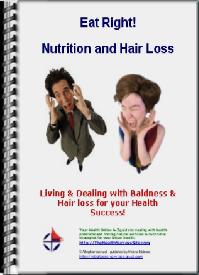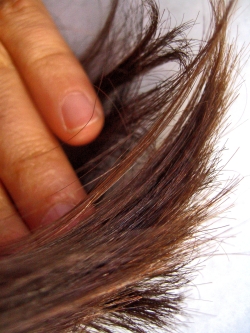Trichotillomania And Hair Loss
There are many reasons why someone may be experiencing hair loss. One that is considered uncommon, but can be a main contributor is the condition, trichotillomania. This kind of hair loss is not caused by natural balding, but by a condition that causes one to repeatedly pull their hair out.
There are many symptoms and some treatments that you should look into if you have this condition. Keep reading to learn more.
Trichotillomania is an impulsive control disorder where a person repeatedly pulls or twirls their hair until it comes out or breaks off.
The cause of this condition is unknown, but it is believed to affect around 4% of the population. Women are generally four times likely to have it than men. Many people with this condition cannot simply stop it.
Repeated pulling and twisting can cause hair to become thinner or for it to not grow back, depending on how bad the breakage is.
There are several symptoms to watch out for if you believe you or a loved one has it. Usually symptoms occur before age 17 in sufferers.
The hair that is removed may come out across the scalp or in round patches creating an uneven appearance. This doesn't just occur with hair on the head, either. Someone with trichotillomania may also pull hair out of other hairy areas of the body like eyelashes, eyebrows, or even body hair.
Children under 17 with this condition usually have hair with an uneven appearance, bare patches of hair loss, exhibit continuous pulling and twitching of the hair.
They may also deny pulling their hair, having stubble-like regrowth, exhibit other types of self-harm, or feel pleasure, gratification or relief after they have pulled the hair out. Individuals of any age may suffer from depression, sadness, anxiety, and a poor self-image.
Testing for this condition may involve an examination of your scalp, skin, and scalp. They may perform a biopsy to rule out any other causes for the hair loss like infections.
Treatment is, unfortunately, a cause for disagreement among medical professionals. Some do not agree with using medication for treating trichotillomania, although there are a couple that could reduce some symptoms.
Since it is often linked with some type of depression, some believe that using SSRIs may help. It is also believed that habit reversal and behavioral therapy could also be effective.
It is expected that children younger than 6 with this condition may have their condition go away without treatment. For older people with it, it could take up to a year to go away.
However, it may never go away for some others. Luckily, there are treatments out there that help better the hair pulling, anxiety, poor self-image, and anxiety.
An obvious complication of trichotillomania is hair loss or baldness. The real issue is if you eat the hair that you pull out, otherwise known as trichophagia. It can cause an intestinal blockage or cause poor nutrition in the body.
As you can see, while not all that commonly mentioned, trichotillomania could be the cause of your hair loss if you exhibit any of the symptoms above.
The earlier that it is diagnosed, the earlier you can start treatment and prevent any terrible damage. Don't forget to reduce stress that can lead to this compulsive behavior.
Learn more here in our online guide about how to deal with hair loss and ways to take preventative steps by keeping your hair healthy
Resources :
 Free Report Reveals tips for “Eat Right! Free Report Reveals tips for “Eat Right! Using Good Nutrition to Prevent Hair Loss” Free Health Book. - Living & Dealing with Hair loss or Baldness. Hair loss is something that over half of the men in this world (and a lot of women too) will have to deal with at some point in their lives. Click the link above or book cover to get your free Report & eCourse today! |
the A to Z directory of dealing with Health Problems & Self Care Strategies for natural remedies to your health issues.

Subscribe to get your weekly "Health Success Magazine" with a new complete & comprehensive Health Report in every edition!

to “Your Health Success”
our weekly F’R’E’E’ Newsletter
If you would like a free no-obligation private consultation or to contact Warren Tattersall for more information, please click here >> Contact Us

Click the books above to learn more about how we treat CFS naturally, to get your life back!
You will find many assorted Health Reports available for download free to you on this website!
Our free Health Success Reports are each available for you to download when you subscribe to receive them and their 7 part eCourse.
You can unsubscribe at any time, but we are sure you will want to receive all the email lessons of these informative ecourses.
Read more HERE to select the REPORT subjects of most interest (or concern) to you.









